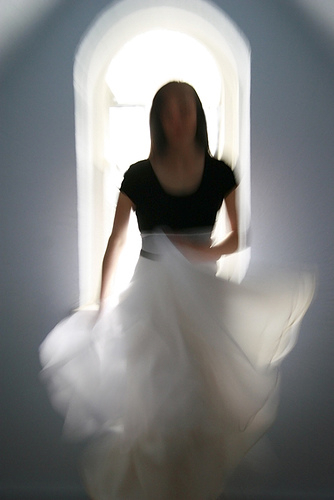Back here in the United States, a number of self-advocates, organizations, and professionals in the field are working tirelessly to promote awareness and encouraging the US Government as well as private funding groups to begin directing attention to autism research focused on females.
In April 30, 2010, I received an opportunity to present a public comment to the IACC Full Committee Meeting in the Ronald Reagan Building & International Trade Center in Washington, DC. I spoke a lot on the needs to fund for critical services for fully dependent individuals like my brother, but I also took the opportunity to bring up the importance of the federal government to increase awareness and funding on research focusing on females. Below is an excerpt of my public comment:
As a female with autism, I felt even more alone during my school years — no support group, no programs tailored to girls on the spectrum. I felt alone, and I felt silenced. It wasn’t until after college that I gained the confidence and courage to disclose my autism, and my hope is that no other woman with autism has to grow up like that, where they feel afraid to speak up because they are not being brought up as much in the conversation on autism, especially teen girls and adult women on the autism spectrum.
As a female with autism, I feel there is a need to increase the focus on research for females on the autism spectrum. My signs were profound enough that I was able to receive a diagnosis at a young age. However, the majority of girls with autism are diagnosed later in life than in boys, because the indicators are often undetected and often mistaken as a state of extreme shyness. When you hear that girls with autism tend to suffer in silence, it is true. Women with autism need to be included in the conversation.
 As a result of the comment I gave, the IACC members have sparked preliminary discussions on the possibility of my involvement in a future IACC Full Committee Meeting: creating and arranging an in-depth presentation on female-focused research, and detailing the reasons to launch and fund research projects studying females on the autism spectrum. I will surely keep you updated if that presentation gig falls through.
As a result of the comment I gave, the IACC members have sparked preliminary discussions on the possibility of my involvement in a future IACC Full Committee Meeting: creating and arranging an in-depth presentation on female-focused research, and detailing the reasons to launch and fund research projects studying females on the autism spectrum. I will surely keep you updated if that presentation gig falls through.
In Closing…
I am optimistic, that with time and continued efforts towards awareness, there will be progress made on the research and studies on females with ASDs, and we will learn so much more about where we as females on the autism spectrum come from and how we can define ourselves. With time, girls will finally be able to be identified more early and intervention programs tailored towards girls will prove to be of tremendous benefit to the entire autism community. In a written statement released by the Autism Women’s Network: “What recognized experts are saying with respect to understanding the differences between autistic males & females: To gain accurate knowledge pertaining to the unique qualities of autistic females will ultimately lead us to a greater understanding of the autism spectrum as a whole.” I completely agree with that.
As for the NIH Autism Center of Excellence adult research study, I continue to think very highly of their mission, and encourage others who think they may qualify to inquire about any of the ongoing studies being conducted at one of the NIH ACEs located throughout the United States.
Let’s continue to keep these women included in the conversation, reassure them they are not suffering in silence, so when a woman finds herself lost in a darkened room, she will be able to pull out the curtains, emerge to the front of the stage, and recite her mantra:
“Are you there, World? It’s me, Autistic Female.”
image credits: Nicolas Karim, Jesse Draper